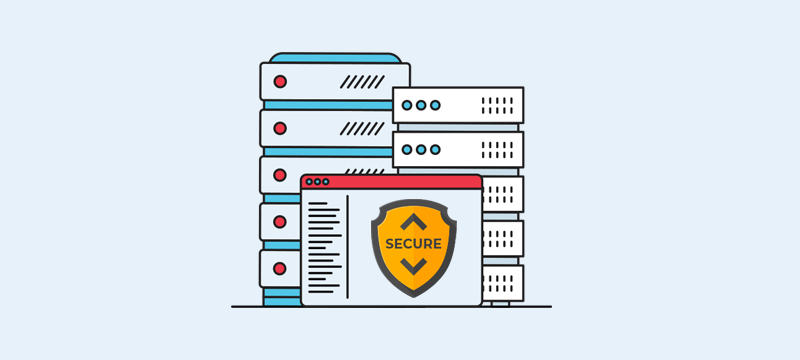In today’s web hosting domain, dedicated servers have emerged as the leading hosting option, and in terms of cost-effectiveness, it is usually placed next to VPS hosting. Most dedicated servers combine the strengths of web hosting in terms of integrated features and unmatched power that a complete server offers to a website. Despite all these benefits, the security of servers continues to be a significant concern.
What are Dedicated Servers?
Any web server that is not shared across several users present on the hosting server is known as a dedicated server. Talking about shared or VPS hosting, the resources are split and shared by different users and websites. In dedicated servers, all resources are entirely dedicated, i.e., belonging to only one user. A dedicated server may host several websites, but these are controlled by a single user only. Dedicated servers can be categorized as- managed and unmanaged dedicated server hosting.
Securing Dedicated Servers
A user can deploy various techniques for securing his dedicated servers. By securing dedicated servers, businesses can ensure maximum protection of their brand, website, customer information, and, most importantly, any essential business data.
So, here are certain best practices for ensuring the maximum security of dedicated servers-
- Timely Installing of Updates The method for having timely installed updates is one of the commonly overlooked security practices. Such overlooked security measures often make dedicated servers more susceptible to any cyberattack and online vulnerabilities. Hackers and other cyber criminals are always up-to-date with new software versions and continuously search for such websites where there might be some uncovered security patches. Cyber criminals take advantage of legacy software applications, and these applications often serve as the base for any attack. One should constantly monitor the latest updates as they offer enhanced overall security of dedicated servers.
- Installing The Required Software Only Businesses must only use and install the software that is needed for running the servers. Also, only a limited number of extensions also need to be used for running a website. Having software that is less frequently used might be a lucrative entry point for cyber-attackers to enter the system. One should always install the plugins and software from reputable sources only. Using untrusted sources for plugins and extensions attracts a lot of online threats. Unwanted software and applications might have uncovered security patches and may lead to exposing of essential data present in the dedicated server.
- Taking Regular Backups To avoid becoming the victims of cyber criminals, businesses must regularly back up all their data present on the website. Besides the online data, other essential data and files must be adequately backup to a Cloud-based solution from a trusted provider. Website backups often help in the real-quick time restoration of the attacked websites, causing nearly no downtime-based issues. We all know what implications website downtime can have for a business. Thus, taking regular backups must be seen as a ‘secure habit’ for ensuring the complete safety and quick availability of websites and other essential business data.
- Using Trusted Networks Another important aspect of dedicated servers is how the login credentials will be used whenever user logins to such hosting service. If the network used for entering the hosting service is not secure, it might lead to the user system getting connected to any vulnerable and open network. This exposes all the hosted data over an unsecured network. To ensure maximum network security, users must also avoid logging in to the server from any public network. Businesses must clearly assign the access roles of those using the network. As an additional security measure, login credentials must be changed from time to time.
- Using Secure SSH and Remote Access Another bunch of security measures for enhancing the security of dedicated servers include- altering the SSH port, disabling the direct root login, and restricting access to specific IP addresses. Also, using SSH Keys in place of passwords can be a secure option when it comes to securing SSH access to a dedicated server.
- Securing Databases For cyber criminals, another vulnerable entry point that is harnessed is the databases. Cyber criminals often search for sensitive data on a website to gain access. Due to various reasons, securing the databases must be a top concern for any business. Using the best practices for databases ensures that they are resistant to all forms of injection. Also, database user privileges should be minimal and any unwanted data should be cleaned. To combat this security concern, one can use various database tools.
Concluding Remarks
Like any other web hosting service, dedicated hosting also needs additional security layers for protecting the hosting server. All these additional layers help in securing the website, the company’s brand, and customer data. Maintaining the security of a dedicated server is, however, an easy practice with a trusted hosting provider.
If you’re looking for secure dedicated server hosting, contact Team bodHOST for unmatched hosting service and exuberant support for all your concerns.
